Mona Eltahawy, a prominent feminist in the Arabic-Muslim world, talks to us about sources of oppression for women – the state, the street and the home – and how the feminist struggle should not focus on attaining equality, but on destroying the patriarchy. Her first book, Headscarves and Hymens, has recently been translated into Spanish by Capitán Swing, and we’ve taken advantage of her visit to the recent Kosmopolis Festival to learn more about her deeply intertwined thoughts and experiences.
Mona Eltahawy was born in Egypt in the sixties before moving to London with her family when she was very young. There, she discovered that not much was expected of Muslim women, as people would ask her about her father’s job but not about her mother’s. As a teenager, she lived in Saudi Arabia, where she discovered a whole new reality in which, she says, she was “traumatised into feminism”. It seems like she didn’t choose feminism, although from what she says, it appears that feminism has been her salvation.
The daughter of Muslims, she also defines herself as Muslim. With an attitude that is always slightly angry, she is clear about the fact that “everyone has a voice, and if we don’t hear it, it’s because we are silencing them”. Something she expressed as a declaration of intent in an article published last year by NCB News: “I swear to make the patriarchy uncomfortable”. She uses her voice, her expressions and even her appearance to occupy as many spaces as she can.
While she’s waiting for the publication of her new book, The Seven Necessary Sins for Women and Girls, she’s come to Barcelona for the presentation of the Spanish translation of her first work, El himen y el hiyab (Headscarves and Hymens), published by Capitán Swing.
The introduction to her new book says that “the key to global freedom is feminism”. Not a feminism that translates into equality between men and women, but in the destruction of the patriarchy. “Equality between men and women does not necessarily lead to justice”. With a keenly global perspective, she explains that equality will not suffice as long as there are systems that discriminate against people through other systems of oppression and marginalisation. In other words, Eltahawy doesn’t want to be equal to a homosexual man in Egypt or a black man in the United States.
Eltahawy talks about a more profound change: the destruction of a patriarchy that she defines as the source of all oppression. “The patriarchy is an octopus”. An octopus with victims all around the world and with many tentacles, for example homophobia, classism, racism and ableism. Patriarchal structures that have defined the societies in which we live – both Western and Eastern – and which she refuses to accept.
When revolutions occur, there is never any time for women, who end up being victims of both public and private repression.
In the protests in 2011, Egypt saw that change might be possible. Eltahawy was at the protests, specifically at Tahrir Square (Liberation Square). As a remnant from those protests, she has two tattoos on her arms, marking the places where her bones were broken by the Egyptian police. When revolutions occur, there is never any time for women, who end up being victims of both public and private repression.
What many considered to be a revolution against a leader, Eltahawy saw as a revolution against a patriarchal regime. She says that she wasn’t fighting against a dictator or a leader, but that her fight was against a regime she calls the “trifecta of oppression”.
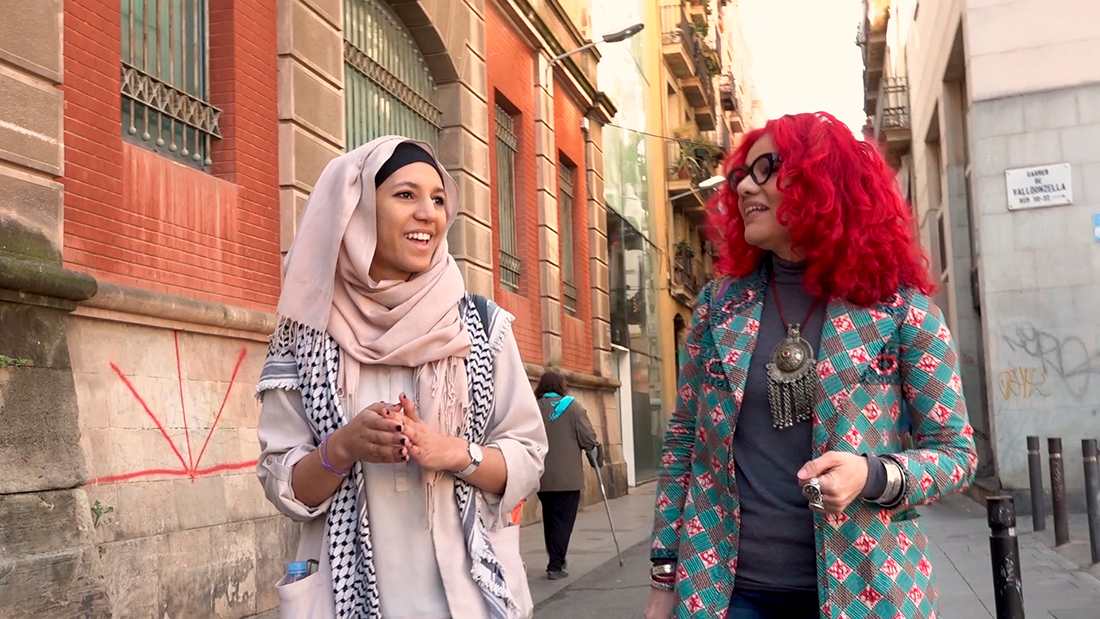
What she defines as the trifecta of oppression is formed by the state, the streets and the home, which are hostile places for women. To put it another way: leaders, friends and family, who respond to deeply rooted patriarchal structures, from the smallest level to the largest and most explicit situations. She talks about the men who take the revolution out onto the streets but who are incapable of introducing it into their own homes, where they continue in their sexist attitudes. And she aims her words at them when she speaks of the need to reflect on what it is we want to abolish.
The sexual aggressions she suffered on the streets at the hands of those who were supposedly her fellow protesters didn’t turn her to thinking that she shouldn’t be out there. Leaving the protests was not an option. Those protests weren’t merely something that was happening alongside her feminist struggle, but an important part of it. And Eltahawy has a few words to say directly to her “fellow” protesters: while you are being oppressed by a leader, I am being oppressed by the State, the street and the home. And I want to fight against this trifecta, not just bear witness to a power struggle between different forces of oppression.
She also saw these forces of oppression when she moved as a teenager to Saudi Arabia. A Saudi Arabia which, in her opinion, does not represent Islam but does have too much power, both in the Islamic world and in the West. Firstly, the country is home to Mecca and Medina – two of Islam’s sacred cities which Muslims must visit at least once in their life. This results in a complicit silence on the part of many people who don’t want to jeopardise their chance to visit the country. Secondly, economic interests lead the Western world to look the other way and ignore the “gender apartheid” instated there.
A few months ago, the country’s ban on women drivers was finally lifted. And in the weeks prior to the lifting of the ban, the crown prince ordered the (ongoing) detention of many of the activists that had spearheaded the movement that resulted in this change to the law. This is why Eltahawy is certain that Mohammed bin Salman, the country’s current leader, is an expert at public relations. In spite of the dozens of cases of imprisonment and torture seen in recent months, he has positioned himself before the world as a force for change who has modified historical laws to supposedly improve the situation of women and strengthen human rights.
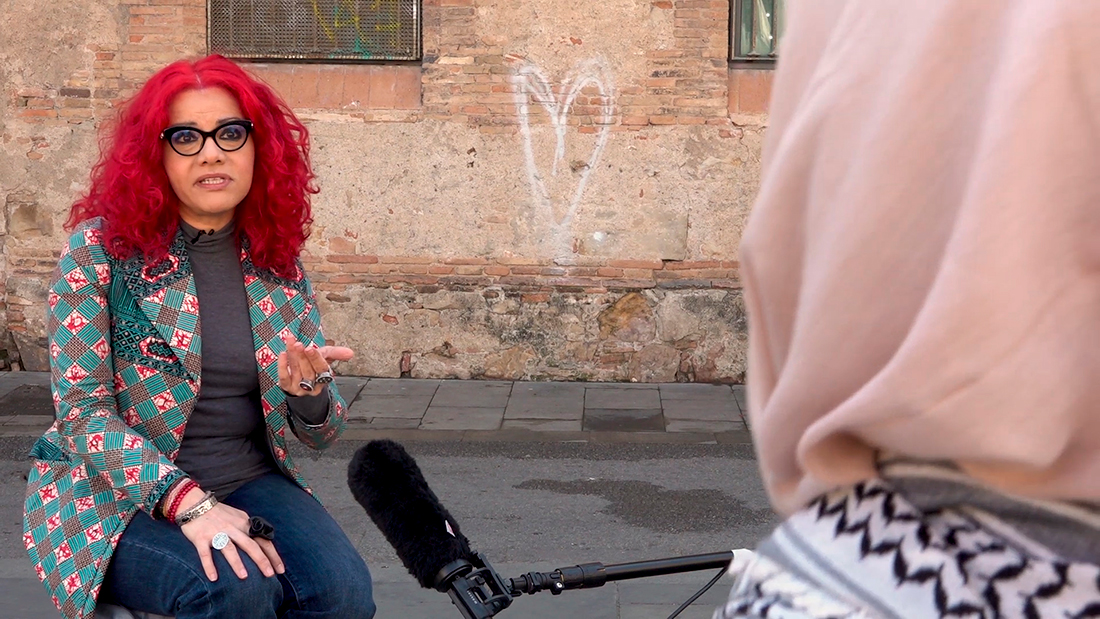
Faced with such oppression, what is the response of Arab women? Feminism. Eltahawy offers a focal point for many Arab women, as she places herself within the sphere of secular feminism while opening her arms to Islamic feminists through the projects she’s involved in. One of these projects is the association Musawah, an organisation created a few years ago by feminist women from Muslim backgrounds and which strives to achieve justice within families, where she works alongside leading Islamic feminist figures such as Amina Wadud, who she describes as her hero.
So, can there be such a thing as Islamic feminism? Eltahawy, as an Arab feminist, doesn’t place herself in this sphere. She defines herself as a feminist and a Muslim, as anarchist and secular. She doesn’t need the role of religion in the feminist struggle. For her, Muslim women often find themselves between “a rock and a hard place”. The rock is the Muslim community that fails to recognise women’s rights, and the hard place is the racism that expects Arab women to speak out against sexism so as to attack the whole community.
Between this rock and this hard place there is much work to be done, but it needs to be done from the context of each person, acknowledging one’s own privileges. Even though she’s tired of talking about the hijab, she talks about Nasrin Sotoudeh, the Iranian lawyer detained for having defended activists who refused to wear the compulsory headscarf.
It is simplistic to only allow Muslim women to talk about feminism in terms of “headscarf or no headscarf”.
Contact with other women and fearless condemnation are what give Mona Eltahawy her strength as a leading feminist in the Arab-Muslim world. She wore a headscarf between the ages of sixteen and twenty-five, but she feels like she’s been talking about it her whole life. Even though she has always been completely opposed to the use of the niqab (a type of veil that also covers the face and only leaves the eyes visible), she believes that only Muslim women should be entitled to voice an opinion about the hijab. Having met women with very different circumstances, Eltahawy believes that there can be a shared struggle between those who do wear a headscarf and those who don’t, as long as the freedoms and privileges of both are acknowledged in their own contexts. Basically, choosing to uncover your head in Iran isn’t the same as in Barcelona.
Eltahawy believes it is simplistic to only allow Muslim women to talk about feminism in terms of “headscarf or no headscarf”. Which is why she has talked about the revolution in Egypt, the crown price of Saudi Arabia and the effect of the patriarchy on minorities.
Her holistic perspective of feminism, taking as its basis Arab feminisms, has been channelled into a third book, currently a work in progress with no title as yet. Who does Eltahawy want to inspire? She wants to inspire people around the world. Everyone who has been a victim of the patriarchy.
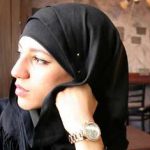
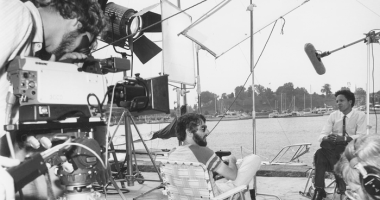
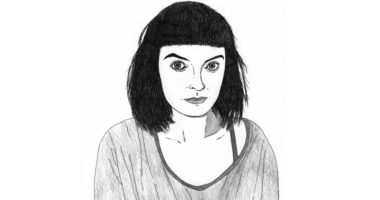
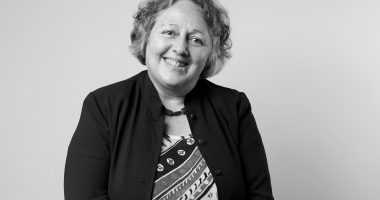
Marta García | 12 November 2019
Gracias por esta información.
Hay muchos más tipos de feminismo además del feminismo occidental.
gracias al feminismo interseccional https://elfeminismo.com/interseccionalidad/ conocemos la gran variedad de feminismos existentes y sus implicaciones de género en la brecha salarial https://www.youtube.com/watch?v=mOS20A14rLc&t=104s.
No dejen de leer https://www.publico.es/sociedad/feminismo-diccionario-feminista-miembros-atonitos-patriarcado-hombres-mujeres.html
Leave a comment